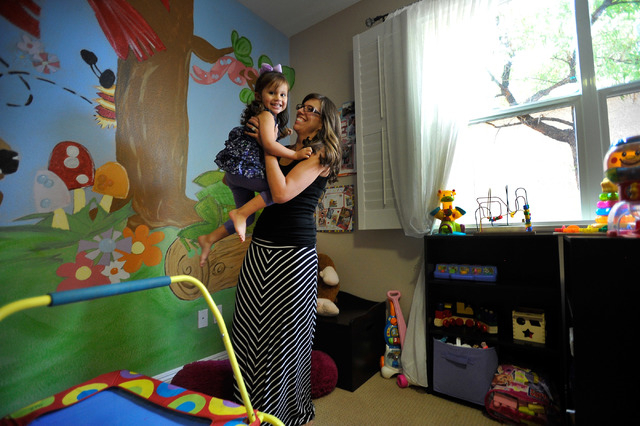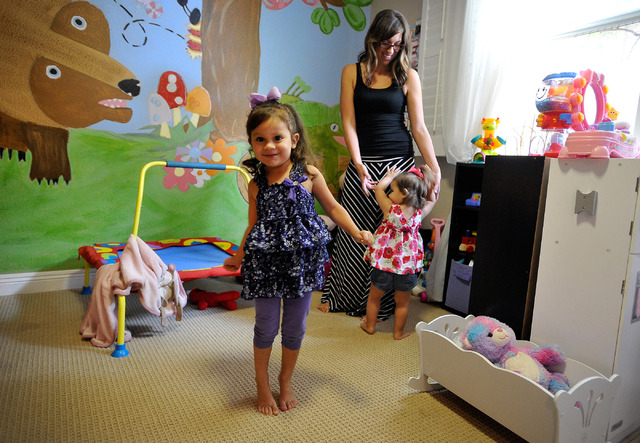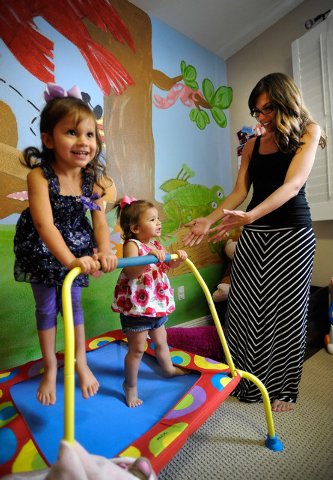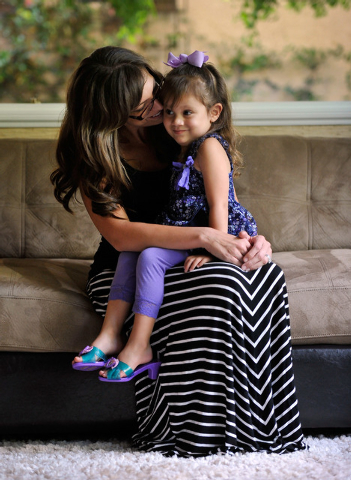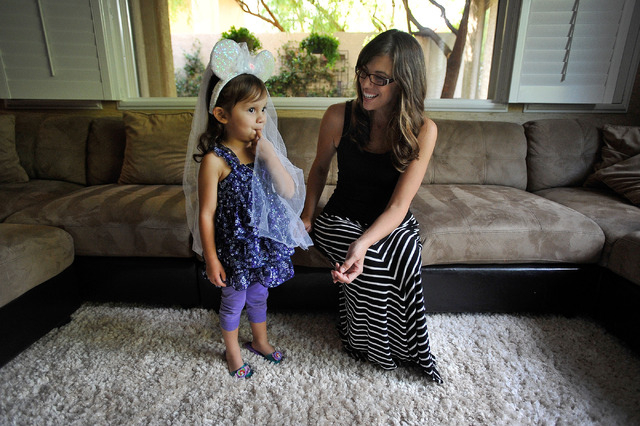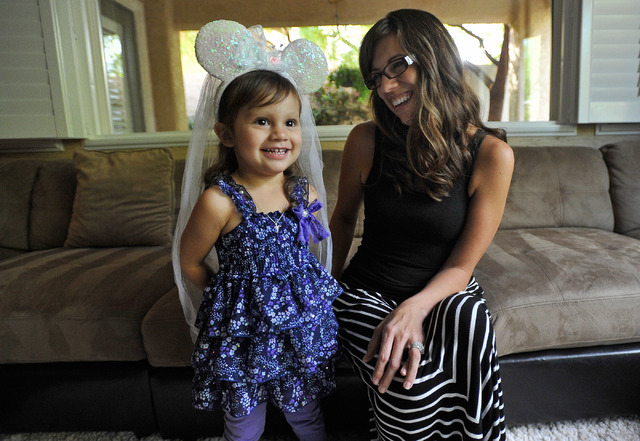Parents adjust as children begin school careers
Boy, that first day of school was rough.
All that stress. All that pressure. All that having to adjust to a totally new environment and totally new people.
Yeah, the first day of school can be tough on a parent.
Now, as kids adjust to new classmates, new teachers and new ways to spend their time, some parents of newly minted schoolkids are adjusting to something they haven’t known for a long time: a few hours of child-free downtime in an empty, or at least emptier, home five days each week.
It’s understandable that the first day of school can be stressful, as both kids and parents are forced to adjust to new routines and parents face the new reality that they no longer will be their children’s sole caregivers.
Sending a child off to school can be particularly difficult for stay-at-home parents who, before the start of school, were able to care for their children pretty much 24/7. Michelle Katz, school counselor at the Adelson Educational Campus, says some parents can find it “hard to let go, because they’ve been the only caretaker all that time and (now) don’t know what to do with themselves.”
When a child begins school — whether it’s nursery school, preschool, kindergarten or first grade — a parent may feel lost or empty, Katz says, experiencing a sense of “what am I supposed to do now?”
“I think, for some of them, it’s probably like a relearning: What do I do now?”
Given all that, it’s not surprising that the separation between parent and new schoolkid on Day One can become, well, emotional.
“I’m not saying it happens here,” Katz says, “but it does happen where mothers break down when they drop a child off.”
It’s not hard to understand. “You’re entrusting the most precious thing in your life to, almost, strangers,” Katz says. “Even though you know they’re in good hands, I think there’s always some apprehension: Am I doing the right thing?”
Melissa Horta sent her daughter Aubrey off to preschool a few weeks ago after having felt, she admits, “this impending doom all summer long,”
Aubrey turned 3 on Friday.
“So it was time for her,” Horta says. “She wanted to go. So all through the process of picking out a backpack and picking out her lunchbox and all these things she wanted to do, she was really excited. As a mom, you say, ‘Isn’t this great?’ because you don’t want them to cry. But, internally, I felt like I was giving her away.”
Aubrey transitioned to school well.
“(She) comes home every day as excited as can be,” Horta says.
For Horta, the transition was a bit trickier. Because Horta, a commercial real estate broker with Realm Realty Group, works from home, she was able to care for Aubrey pretty much full time until now. That made adjusting to an Aubrey-less house five days a week difficult.
Not that Horta is alone even now. Her youngest, Kinley, is 18 months old, and Horta even has been through all of this before with her oldest daughter, Kenna, who’ll turn 14 next month.
When Kenna headed off for her first day of school, the silence was “deafening,” Horta says. Now, sending Aubrey off to school has revealed, Horta says, that “it does not get easier.”
Making Aubrey’s transition into preschool a bit more difficult: She did shed a few tears at first. But, after the first week, Horta says, “as I was driving her and her little sister, she said: ‘Mom, I’m not going to cry anymore. I’m a happy kid and crying hurts my ears.’ You’re just like, ‘Attagirl!’ ”
A few weeks ago, Stephanie Olezeski sent her 4-year-old son, Matthew, off to preschool. He had attended a co-op preschool previously for about four hours each week, but now will be out of the house for four hours on five days every week, leaving parents Stephanie and Tom to a temporarily childless home.
Stephanie Olezeski admits that the place does seem a bit empty when Matthew is at school. But instead of dwelling on the quiet, the couple has made it a point to schedule activities together whenever Stephanie, a commercial airline pilot, is home.
“I already started planning, in my brain, weeks prior of projects to do during that time,” she says. “I was excited to have uninterrupted time because I’m a working mom. When I’m home, he has my attention. I don’t tell him, ‘Play by yourself,’ because I have mom guilt. But to be able to do a project on my own without feeling guilty about it was really exciting.”
Since school began, Stephanie and Tom have taken walks — using, she jokes, “adult steps, not steps of a 4-year-old’s speed” — and have gone out on lunch dates before picking up Matthew from school together, even if, Stephanie says, “what we end up talking about is our son. How do you think he’s doing? Is he crying? Do you think he’s OK? Is he having fun?”
Another thing she and Tom have done together while Matthew was at school during those first days was offering each other “mutual support when he cried when we left.”
But Matthew is doing fine now, she says. The family moved to Nevada from Ohio a few months ago, “so he’s had a full summer of Mom and Dad and, really, nobody else,” Stephanie says. “We don’t have any friends in the area yet, so he’s been kind of a little isolated.”
Katz says that, whatever a parent is feeling as a child starts school, they’d do well to not pass their own concerns on to their children.
“(Kids) pick up on what parents are feeling,” she explains, “so parents need to make sure they don’t project that onto their children, because you want your kids to feel good about going to school, not anxious and worried.”
Contact reporter John Przybys at jprzybys@reviewjournal.com or 702-383-0280.



